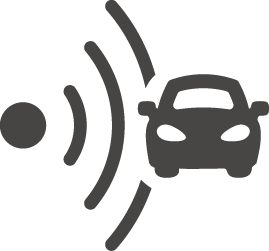What does the mobility law recommend?
- Using more ecological, then autonomous, cars in 2020
- Facilitate home-work journeys
- Encourage travel by bike or carpool with a bonus of €400/year
The objective set by the President of the Republic is therefore: “to concretely improve daily mobility for all citizens and in all territories, thanks to more efficient, cleaner and more accessible transport solutions. »
The mobility law was unveiled on November 26, 2018 in the Council of Ministers with 4 objectives:
Opening up territories by offering alternative solutions to the individual car

The organization of new mobility services includes:
- the installation of public transport in all areas (even the most remote),
- the development of carpooling , on-demand transport and car-sharing ,
- cooperation between mobility organizing authorities and employers in order to facilitate the journey of travelers and employees ,
- the creation of a committee of partners bringing together users, associations and employers
- the introduction of reduced rates for disabled people and their companions.
Reduce the environmental footprint of transport

By 2020, a Sustainable Mobility package will be allocated to employers, who will be able to pay back, without charge or tax, up to €400/year to each employee coming to work by bike or carpool.
Furthermore, the Bicycle plan soon to be presented by the government aims to establish cycling as a mode of transport in its own right by developing more cycle paths and installing bicycle parking spaces in buildings and at stations. The law also wants to accelerate the transition of all vehicle fleets in order to reduce greenhouse gas emissions; with 2 objectives:
- Multiply electric car sales by 5 by 2022
- No longer depend on thermal vehicles in 2040
This transition will also involve the expansion of Low Emission Zones (ZFE) before the end of 2020, access which will be reserved for the least polluting vehicles, using Crit'Air stickers.
Accelerate the development of innovation and new mobility solutions

The development of new mobility will involve digital transformation with the aim of better knowing and preparing your journey. The data on mobility offers will be in real time by the end of 2021. The LOM law will also provide access to new mobility services: self-service scooters, autonomous vehicles and shuttles, bicycles/scooters without a docking station, etc. with compliance with the specifications for new users, established by the organizing authorities.
Invest more in infrastructure

For 5 years, the State will allocate 13.4 billion euros to mobility for new transport programming (+40% compared to the 2013-2017 period).
It includes 5 essential programs: maintenance and modernization of road, rail and river networks; the desaturation of major railway junctions; the opening up of medium-sized towns and rural areas by road and the development of clean and shared mobility on a daily basis; and finally the modal shift in goods transport.


